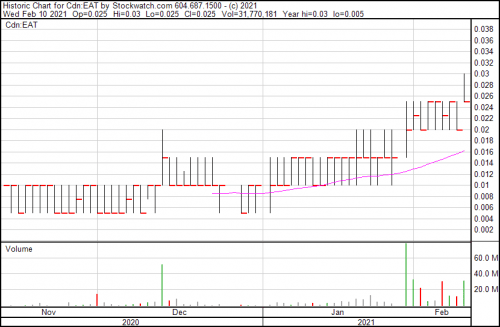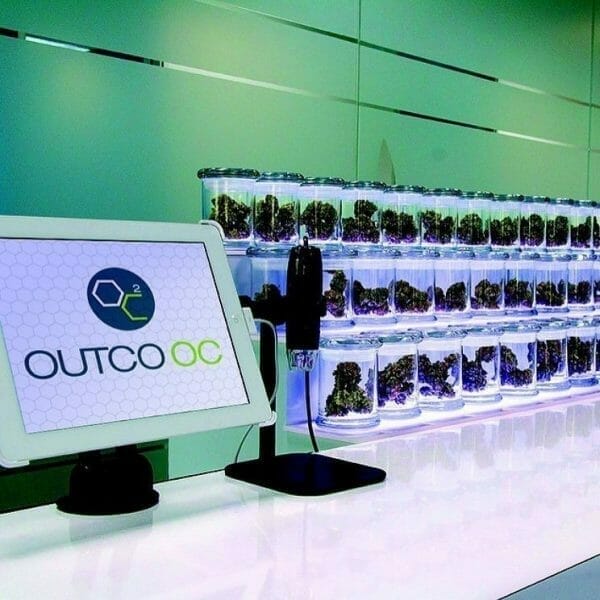Nutritional High International (EAT.C) signed an LOI to acquire Kruzo LLC, a company involved in development and research of products surrounding the psychoactive cacti peyote, as well as other plant-based medicinal products derived from Asian herbal medicine.
Mescaline is the psychoactive compound in the peyote cactus. It bears some similarities to psilocybin, but is distinctively different in terms of the pharmacology and experience. Mescaline binds to serotonin receptors in the brain the same as psilocybin does, but different ones than psilocybin responds with. Mescaline also has an affinity for dopamine receptors—or the reward centre of the brain. It’s these connections that lead people to believe to help reduce depression and other mental illnesses.
It contains 57 naturally occurring alkaloids, alkaloidal amines and amino acids, as well as a substance called Hordenine, which is included in plenty of dietary supplements to improve athletic performance and manage weight loss. Kruzo intends to work with Thai researchers and Rangsit University in Pathum Thani, Thailand to investigate the potential of compounds derived from peyote in control of obesity, fighting depression and other applications.
“This acquisition is part of our plan to continue to pivot Nutritional High’s focus to its highest margin product categories. While we will continue to develop, manufacture and sell cannabis products, the Kruzo acquisition will enable us to incorporate psychoactive and a broad range of functional plant-based derivatives into our product offerings,” said John Durfy, CEO of Nutritional High.
Dosages can vary depending on the type taken—either mescaline hydrochloride, mescaline sulfate or freebase mescaline. A strong dose of mescaline hydrochloride is between 300-500mg, and the effects generally set in around 45-90 minutes after ingestion with the experience lasting approximately eight hours. While you’re tripping, you’ll experience visual hallucinations in the form of patterns, spirals and mosaics, and even more potent visuals of animals are people have apparently been reported. The drug is far off from primetime, but this trend tracks with the experiences of some other companies in the nascent psychedelics space trying to find a way to rope experiences like the ones listed above into some variety of therapeutic regimen.
Either way, Kruzo has previously focused on the development of products combining CBD and other cannabinoids with Thai based herbal medicine. They have developed an acne treatment which is presently being prepared for commercial launch. Now Kurzo intends on leveraging its pre-existing relationship with Rangsit University to investigate how peyote alkaloids and traditional Asian herbal products, as well as CBD and other cannabinoids, might work in concert and what issues they might be marketed towards resolving.
One of Nutritional High’s directors, Tom Kruesopon, is a shareholder of Kruzo, and actually helped launch the company. He’s anticipating on continuing to work with Kruzo, Nutritional High and his joint venture company Golden Triangle to develop an Asian strategic focus for Nutritional High. This acquisition will allow Nutritional High to diversify its focus to include other plant-based wellness products beyond cannabis.
“We believe that, similar to psilocybin, the Peyote cactus plant and other psychoactive cacti may have potential to assist in the treatment of depression, obesity and a number of mental health related ailments. We believe the acquisition of Kruzo will significantly strengthen our science team and advance our business strategy in Asia,” said Adam Szweras, chairman for Nutritional High.
Prior to completion of the acquisition, Kruzo will form a Canadian parent company which will raise approximately $1.5 million. Nutritional High expects to issue 150 million shares at $.035 per share and a number of share purchase warrants to be determined after the acquisition closes.
—Joseph Morton







